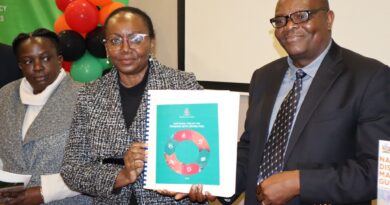Cassava’s Transformation as Zambia’s Key Crop in Oil Production
In a recent opinion editorial in the Times of Zambia’s business section, the spotlight was firmly placed on the pivotal role of cassava as a strategic crop with the government’s resolute push for an ethanol blending program.
This transformative initiative, steered by a series of government-backed measures, seeks to boost the role of cassava in the country’s burgeoning oil production sector.
The Government has ushered in a significant change by granting approval to Oil Marketing Companies (OMCs) to commence a six-month pilot program for blending anhydrous ethanol.
This decision, ratified on September 28th by the Cabinet, aims to reduce Zambia’s reliance on traditional fossil fuels and promote the use of biofuels.
Zambia has experienced considerable economic challenges due to global macro-economic fluctuations that have significantly impacted the prices of commodities, including crude oil.
As a nation reliant on fuel imports, these price fluctuations have caused considerable uncertainty and financial planning challenges for businesses.
The monthly pricing index implemented by the Energy Regulation Board (ERB) compounded these challenges.
Recognizing the potential for cassava to be the cornerstone of the ethanol production process, the government’s strategy envisions cassava as the primary raw material for producing anhydrous ethanol.
This versatile crop is already used in various applications, from the production of local beer to paper glue and more. This versatility makes cassava an ideal candidate for becoming a strategic crop in Zambia’s agriculture sector.
Moreover, cassava’s economic importance extends beyond ethanol production. It plays a pivotal role in producing a range of products, including sanitizers, disinfectants, and even mineral processing through cassava chips.
As such, positioning cassava as a strategic crop offers not only economic benefits but also the potential for diversification and resilience within the agricultural sector.
The government’s commitment to reviewing the fuel pricing system and offering tax support for exploration projects underscores its dedication to promoting economic stability and growth.
The removal of customs duties on machinery for oil and gas exploration aligns with the nation’s vision for increased self-sufficiency and reduced dependence on traditional fossil fuels.
As the government proceeds with its vision to reduce fuel imports, the journey towards making cassava a strategic crop will not only strengthen the agricultural sector but also play a pivotal role in creating a more robust and sustainable economy for Zambia.
Cassava’s transformation from a multipurpose crop into a cornerstone of Zambia’s biofuel industry exemplifies the nation’s resolute commitment to fostering innovation and sustainable economic growth.



